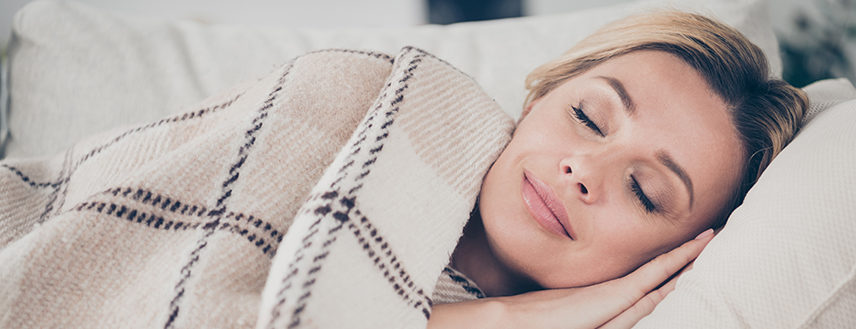
The holidays are almost here and we’re all running on empty. There is so much to be done and yet the days still have just 24 hours each. And so, we stay up later to get everything accomplished. But recent research suggests that getting just one hour of sleep more each night could dramatically affect your health. In fact, a study from the University of Chicago found that those who increased their sleep from 6 to 7 hours had a 33 percent decreased chance of having clogged arteries.
It almost sounds impossible to increase sleep by one hour. Here are five tips to help you get to bed earlier – it just might save your life.
- Avoid Caffeine – sounds like common sense to avoid coffee, chocolate and soda before bed, right? But even an afternoon cappuccino or candy bar may be enough to disturb your sleep, as the body requires up to five hours to rid itself of caffeine. It can take as little as 30 milligrams of caffeine to wreak havoc on your sleep cycle.
- Time Exercise – Exercising is great for your health, but timing is key. Exercising right before bed makes sleeping more difficult. Our body temperature rises during exercise, and can take as long as six hours to drop. Decreases in body temperature help initiate sleep, so it’s important to let your body cool down before bed. The National Sleep Foundation recommends late afternoon exercise or finishing your workout at least three hours before bedtime.
- Eliminate Alcohol – Alcohol has two negative effects on sleep: one is to put you to sleep, and the other is to wake you up three or four hours later. Because alcohol is a depressant, it tends to reverse its soporific effect within a few hours. As a result, you may miss out on valuable REM rest – the final stage of your sleep cycle, when our most vivid dreams occur.
- Take Melatonin – Melatonin (the sleep hormone) decreases as you age. If you have trouble falling or staying asleep, your body may not produce enough. Some studies have shown that the use of melatonin can shorten the time it takes to fall asleep and reduce the number of nighttime awakenings.
- Reduce Electronics – Whether it’s email, a video game, Facebook, or TV, electronic devices are interfering with our sleep. They’re too stimulating. As your brain revs up, its electrical activity increases and neurons start to race – the exact opposite of what should be happening before sleep. Plus the blue glow from electronics has been found to delay the release of the sleep-inducing hormone, melatonin.
